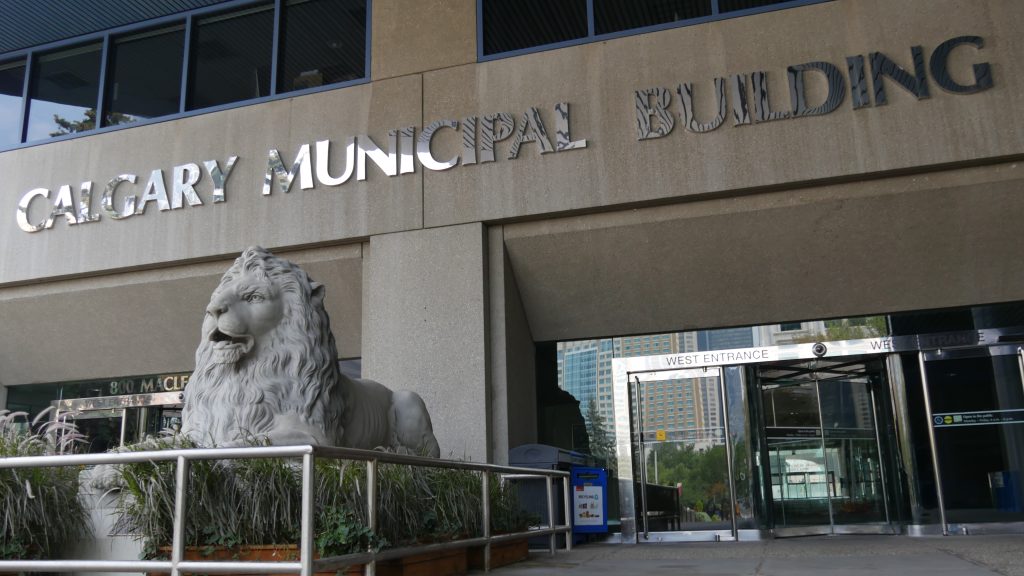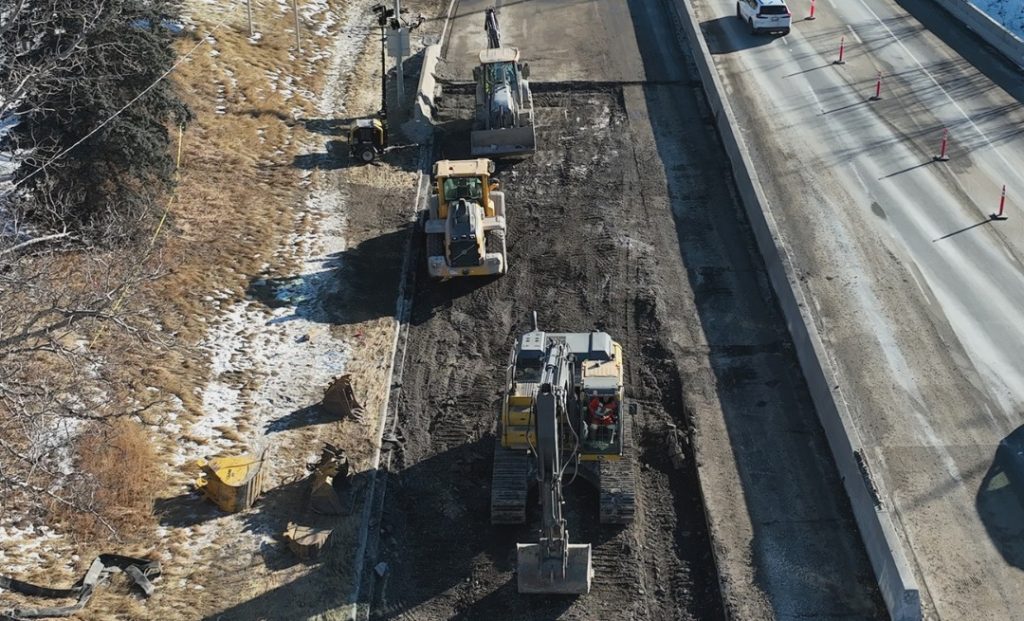Calgary vows to ‘Buy Local’ on contracts amid U.S. tariffs

Posted Mar 31, 2025 1:17 pm.
Last Updated Apr 1, 2025 8:30 am.
A day before U.S. President Donald Trump is expected to announce more tariffs against Canada, the City of Calgary says it’s increasing efforts to buy local products and hire local companies.
The Canadian Chamber of Commerce says Calgary is the second most vulnerable city to be hit hardest by U.S. tariffs due to its major exports of crude oil, natural gas and beef to the U.S.
“We are making conscious decisions to buy local or Canadian where we can, to decrease our reliance on U.S. suppliers, to further support our economy,” said Calgary’s director of supply management, Amit Patil.
The city says it’s already a leader in prioritizing local through its Social Procurement Program.
The program includes a questionnaire which gives small and medium-sized businesses an advantage.
Changes to the city’s procurement practices including the questionnaire, announced Monday, are aimed at increasing local and Canadian procurements to counteract the impact of U.S. tariffs.
For large, competitive procurements of goods and materials, the social procurement questionnaire weighting will be increased to 10 per cent, up from the current range of five to 10 per cent.
For services, including consulting and construction, where possible, the questionnaire weighting will be increased to 10 per cent. The range will stay within five to 10 per cent and the city will review service procurements on a case-by-case basis.
For purchases of small procurements, the city says it will try to get all three quotes from local suppliers where possible, up from the one local quote out of three.
When not possible, the city said they will try to prioritize Canadian suppliers.
City officials say past supply chain disruptions led administration to develop a program which ensures Calgary’s supply chain stays “strong and agile through mitigating measures”
“We have been proactively managing supply chain challenges, including tariffs and commodity fluctuations for several years now,” Patil said.
Approximately 95 per cent of the city’s contract value is with Canadian suppliers, and approximately 70 per cent of that value is within Alberta, according to the city.
Last month, city council approved six recommendations in preparation for the tariff war.
This includes monthly updates starting in April to council’s executive committee on tariffs and supply chain issues, reviewing ways to better improve the city’s procurement efforts to buy more local, and advocating to other levels of government to remove interprovincial trade barrier.








